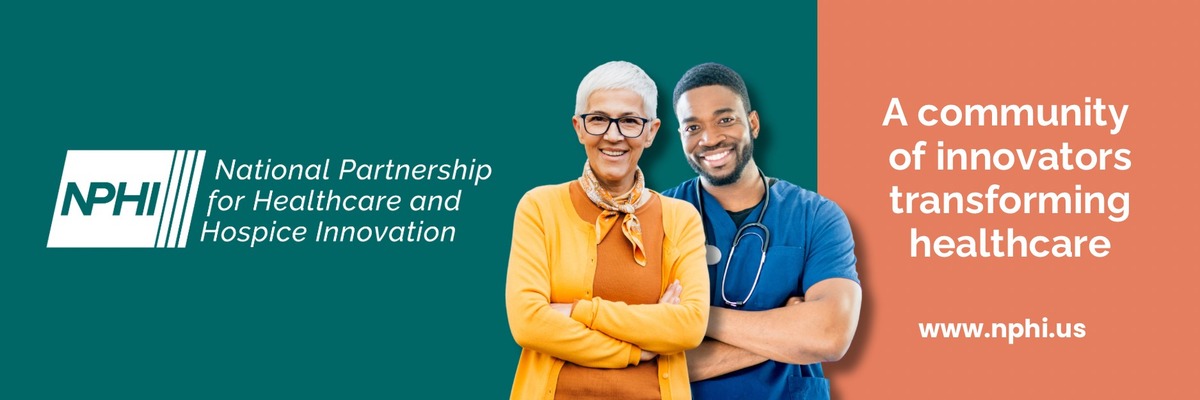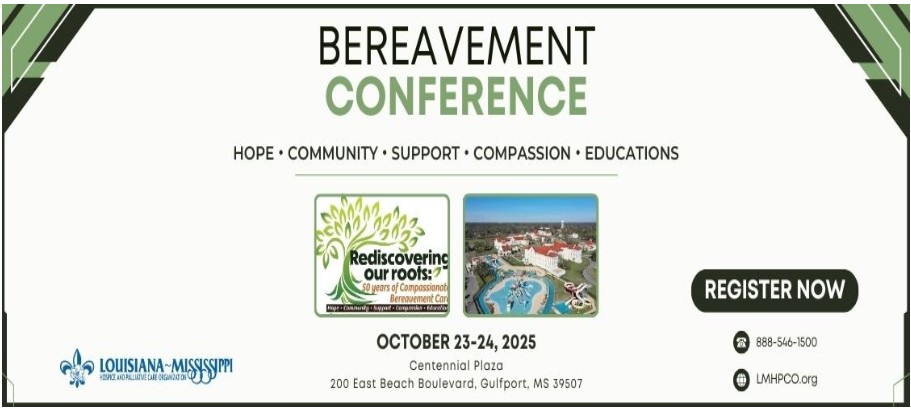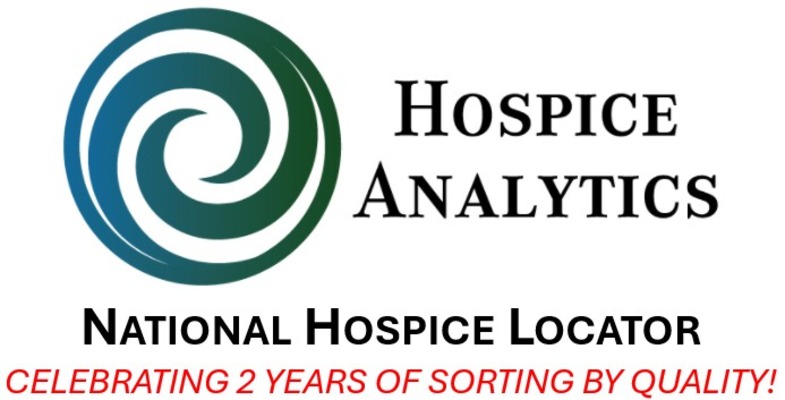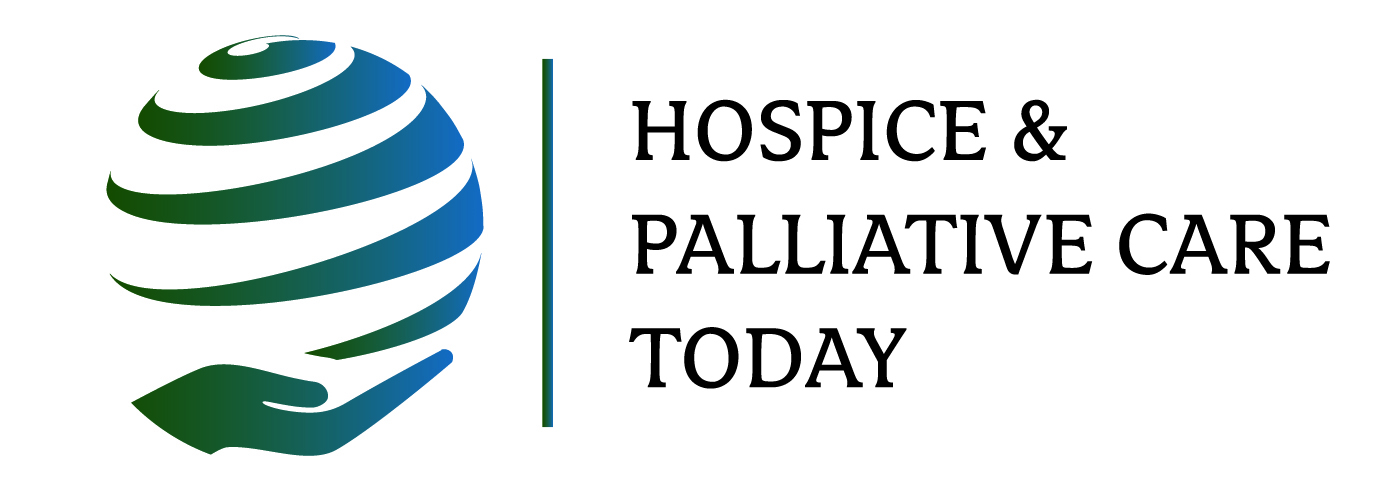Sign up for our free daily newsletters here! Note: subscribers can access our search feature!
Welcome to Hospice & Palliative Care Today, a daily email summarizing numerous topics essential for understanding the current landscape of serious illness and end-of-life care. Teleios Collaborative Network podcasts review Hospice & Palliative Care Today monthly content - click here for these and all TCN Talks podcasts.
3. Creating a workplace violence safety committee [free webinar 5/22/25]
4. Finding her strength in silence: CSU Pueblo student graduates twice, carrying her mother’s dream
6. Unintended, percolated work: Overlooked collaborative opportunities during end-of-life care
7. Dying at home becomes more common for patients with history of ischemic stroke
9. Medicaid hospice payments for room-and-board to resume in California
11. Restructuring for risk: How home-based care providers build frameworks that boost profits
The future of dying with Dr. Ira Byock | Pop 1205
Practice of the Practice; podcast by Joe Sanok with Dr. Ira Byock; 5/14/25
How can we embrace conversations about death and dying? What is the healing power of forgiveness and connection in end-of-life care? When we face morality, how can we transform fear into meaningful connections? In this podcast episode, Joe Sanok speaks about the future of dying with Dr. Ira Byock. .. In this podcast:
- Cultural perspectives on dying
- Shifting perspectives and personal growth through death
- Psychedelics and end-of-life care
- The Four Things That Matter Most
- Dr. Byock’s advice to private practitioners
[June 12-18, 2025] Why celebrating CNA Week is a big deal
ShiftMed; by Sarah Knight; 4/23/25
National Certified Nursing Assistant (CNA) Week, which kicks off on the Thursday of the second full week of June, is an annual tribute to the dedicated individuals who form the backbone of our healthcare system. So, as we approach CNA Week 2025, we must recognize their tireless efforts and unwavering commitment. ... CNA Week 2025 kicks off on Thursday, June 12 and runs through Wednesday, June 18. This year’s theme, “We Are the Champions,” celebrates CNAs as the unsung heroes of frontline care—professionals who ensure patients feel seen, heard, and truly cared for every single day. ...
- [Here] are five meaningful ways to celebrate CNAs this week: ...
- Here are five reasons nursing assistants deserve recognition, respect, and appreciation during CNA Week—and throughout the year: ...
Editor's note: It's time to plan 2025's CNA celebrations! Often, CNA's spend more time with the hospice patient and family than any other interdisciplinary team member. Their skills can bring immeasurable relief for caregivers. My mother was actively dying in our home. While her hospice CNA was gently tending what we knew were her final hours, Shelly (her aide) beautifully shared with me what she had "learned from Jane." My mom had encouraged her to "travel while you're young! Get to know our bigger world." And Shelly told me, "your Mom always told me to leave this space on the bed clear, 'cause 'that's where Joy sits.'" On that most painful day, Shelly's presence, care, and words are one of the best memories I carry, always. With gratitude, Joy Berger (Editor in Chief)
 |
Creating a workplace violence safety committee [free webinar 5/22/25]
CHAP free webinar; 5/15/25
The focus of this webinar is on the critical role of a multidisciplinary Safety Committee in proactively addressing workplace violence within home-based care... Participants will gain practical strategies for implementing proactive safety measures, including risk identification, technology integration, and fostering a culture of safety and accountability to empower staff and mitigate the risks inherent in the unique challenges of providing care in patients' homes.
Editor's note: This hot-topic's significance is evidenced in recent posts.
Finding her strength in silence: CSU Pueblo student graduates twice, carring her mother's dream
Colorado State University Pueblo, Pueblo, CO; by Soni Brinsko; 5/14/25
The porch was still new when the professors arrived that late November evening. Hand-laid tiles, each one carefully placed by a father during what should have been vacation time. He’d built it for his wife so she could sit outside, feel the Colorado breeze one more time. That night, the porch became something else entirely. It became a stage for a graduation ceremony that wasn’t supposed to happen until May. Alondra Solis Ayala is about to walk across the commencement stage at Colorado State University Pueblo this week. It will be her second graduation. The first one happened in her family’s living room, with her dying mother watching from a chair, too weak to stand but strong enough to declare “esa es mi hija”—that’s my daughter—as faculty members in full regalia handed over a diploma cover and stole in what became an impromptu, deeply personal ceremony.
 |
Palliative and end-of-life care during critical cardiovascular illness: A scientific statement from the American Heart Association
American Heart Association; by Erin A. Bohula, MD, DPhil, Michael J. Landzberg, MD, Venu Menon, MD, FAHA, Carlos L. Alviar, MD, Gregory W. Barsness, MD, FAHA, Daniela R. Crousillat, MD, Nelia Jain, MD, MA, Robert Page II, PharmD, MSPH, FAHA, Rachel Wells, PhD, MSN, and Abdulla A. Damluji, MD, PhD, MBA, FAHA on behalf of the American Heart Association Acute Cardiac Care and General Cardiology Committee of the Council on Clinical Cardiology; and Council on Cardiovascular and Stroke Nursing; 5/15/25
Abstract: Cardiac intensive care units are witnessing a demographic shift, characterized by patients with increasingly complex or end-stage cardiovascular disease with a greater burden of concomitant comorbid noncardiovascular disease. Despite technical advances in care that may be offered, many critically ill cardiovascular patients will nevertheless experience significant morbidity and mortality during the acute decompensation, including physical and psychological suffering. Palliative care, with its specialized focus on alleviating suffering, aligns treatments with patient and caregiver values and improves overall care planning. Integrating palliative care into cardiovascular disease management extends the therapeutic approach beyond life-sustaining measures to encompass life-enhancing goals, addressing the physical, emotional, psychosocial, and spiritual needs of critically ill patients. This American Heart Association scientific statement aims to explore the definitions and conceptual framework of palliative care and to suggest strategies to integrate palliative care principles into the management of patients with critical cardiovascular illness.
Unintended, percolated work: Overlooked collaborative opportunities during end-of-life care
EurekAlert! - American Association for the Advancement of Science (AAAS); by Institute of Science Tokyo; 5/14/25
[This study's researchers describe:] "Bereaved family members broadly recollected the mixed regretful actions and decisions that should have been taken during the end-of-life care process. Coordination and cooperation challenges that existed between health care professionals and family caregivers emerged as factors that impeded these actions at the time." [They identified three types of] unintended, percolated work (UPW). ...
- ... overloaded work experienced during the caregiving and end-of-life stages, which arose from the demands of their daily life, compounded by the added responsibilities of caregiving ...
- ... overlooked work due during the end-of-life and near-death stages ... [leaving] the caregivers helpless and abandoned due to a lack of support from medical professionals and other family members.
- ... overstepped work experienced during the near-death stage by medical professionals, where doctors and nurses intervene in the patients' care, unintentionally disregarding the agency of the family caregivers
 |
Dying at home becomes more common for patients with history of ischemic stroke
NeurologyToday; by Susan Fitzgerald; 5/15/25
In contrast to earlier studies showing a decline in stroke prevalence and mortality, a new study found that the rates are going up and more people, particularly Black Americans, are either dying at home or arriving to the hospital dead on arrival. Experts speculate that the trend may be driven by the lack of access to hospice services and care, in general.
UnitedHealth Group is under criminal investigation for possible Medicare fraud
The Wall Street Journal; by Christopher Weaver and Anna Wilde Mathews; 5/15/25
The Justice Department is investigating UnitedHealth Group for possible criminal Medicare fraud, people familiar with the matter said. The healthcare-fraud unit of the Justice Department’s criminal division is overseeing the investigation, the people said, and it has been an active probe since at least last summer. While the exact nature of the potential criminal allegations against UnitedHealth is unclear, the people said the federal investigation is focusing on the company’s Medicare Advantage business practices. UnitedHealth said in a statement it hadn’t been notified by the Justice Department of the criminal investigation. The statement said the company stands “by the integrity of our Medicare Advantage program.” A DOJ spokesman declined to comment.
 |
Medicaid hospice payments for room-and-board to resume in California
Hospice News; by Jim Parker; 5/15/25
After years of nonpayment, the California Department of Health Care Services (DHCS) has instructed Medicaid managed care plans to pay hospices for nursing home room and board. The issue pertains to patients who are dually eligible for Medicare and Medicaid. When caring for patients in nursing homes, hospices typically pay for their room and board with the expectation that they will be reimbursed by Medicaid for those expenses. However, due to confusion among managed care plans that oversee Medicaid in most states, those hospices have not been receiving those payments.
A new era of healing: How home care is changing the healthcare landscape
Repertoire Magazine; 5/13/25
Older adults often prefer receiving care in familiar surroundings, which enhances their comfort and quality of life. Home health services enable patients to age in place, reducing the need for institutional care, such as nursing homes. ... For the May issue, Repertoire Magazine spoke to several experts – from distributors to providers – on the current realities of the home care market and what’s in store in the years to come. ...
- Why is home care an exciting market to be in right now? ...
- What role is new technology playing in home care’s growth? ...
- What are the biggest challenges facing home care providers in today’s market? ...
- What are the most common conditions or illnesses being treated in the home? ...
- Are we getting better at managing a patient’s care throughout the continuum, even though we’re talking about different providers, settings and services? ...
 |
Restructuring for risk: How home-based care providers build frameworks that boost profits
Home Health Care News; by Joyce Famakinwa; 5/14/25
In the home-based care world, building a business that is equipped to take on risk-based reimbursement arrangements can be easier said than done. While no simple feat, taking on risk is an attractive option that allows home-based care providers to align incentives between their organizations, payer sources and patients. Providers that have found success with risk-based agreements have done so by addressing retention challenges, investing in data and more.
[United Kingdom] For, against, undecided: Three GPs give their views on assisted dying
BBC News; by Catherine Burns and Vicki Loader; 5/13/25
If you ask these three doctors about being GPs, their answers are remarkably similar. "It can be the best job in the world," one tells me. It's "a privilege" another says. They all talk about how they love getting to know their patients and their families. But all three have different views on assisted dying. Right now, the law here is clear: medics cannot help patients to take their own lives. But that could change. The Terminally Ill Adults (End of Life) Bill is being debated in Parliament. And if it goes through, it will give some terminally ill patients in England and Wales the option of an assisted death. Here, three doctors - Abdul Farooq, Susi Caesar and Gurpreet Khaira, who all have a different view on assisted dying - tell us how they feel about the proposals.
 |
Executive Personnel Changes - 5/16/25
- Humana Inc. has confirmed that Susan Benoit, the former president and CEO of CenterWell Home Health, has transitioned to a role at Gentiva as senior vice president of business development for Gentiva’s hospice division. Benoit has been at Gentiva since the summer of 2024, according to a company spokesperson.
- Intermountain Health names new CCIO and CHIO
- Tamara Moores Todd, MD, will serve as chief health informatics officer (CHIO)
- Jason McClellan will serve as chief clinical informatics officer (CCIO)
- Mary Kay Sheehan posted about a Lightways Hospice and Serious Illness Care project - The Memory Box Project.
- Edo Banach posted John Mulder was my hero. He was for many others as well. Smart, kind, a musician… he had it all. Gone too soon, but he lives on in all of those who knew him.
- Tarrah Lowry posted about Empath Health's team joining ABC7 Sarasota’s Suncoast View to talk about their new Bradenton location.
- Monica Escalante posted Hospice of the Chesapeake was honored to host the Hospice and Palliative Care Network of Maryland’s strategic planning meeting.
- Megan Cannone posted an article she authored, An Oncology Social Worker’s Transition to Private Practice in aosw.org.
 |
The Fine Print:
Paywalls: Some links may take readers to articles that either require registration or are behind a paywall. Disclaimer: Hospice & Palliative Care Today provides brief summaries of news stories of interest to hospice, palliative, and end-of-life care professionals (typically taken directly from the source article). Hospice & Palliative Care Today is not responsible or liable for the validity or reliability of information in these articles and directs the reader to authors of the source articles for questions or comments. Additionally, Dr. Cordt Kassner, Publisher, and Dr. Joy Berger, Editor in Chief, welcome your feedback regarding content of Hospice & Palliative Care Today. Unsubscribe: Hospice & Palliative Care Today is a free subscription email. If you believe you have received this email in error, or if you no longer wish to receive Hospice & Palliative Care Today, please unsubscribe here or reply to this email with the message “Unsubscribe”. Thank you.

